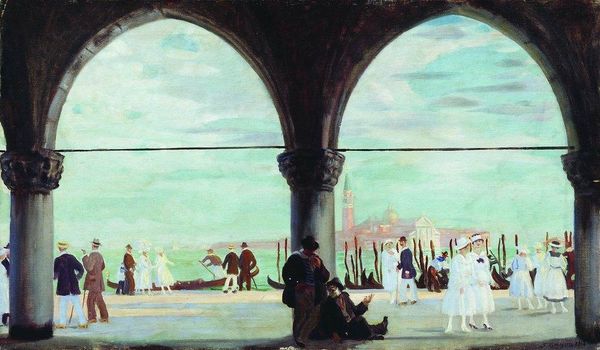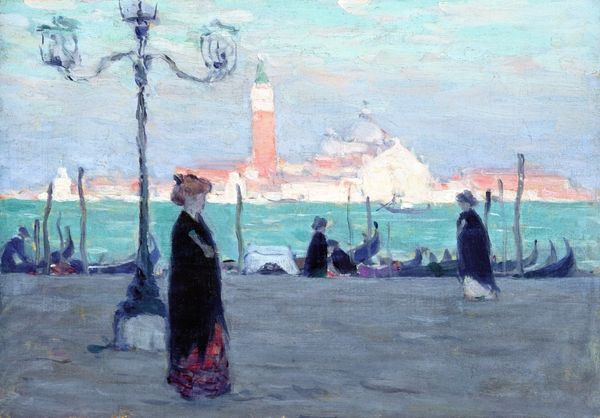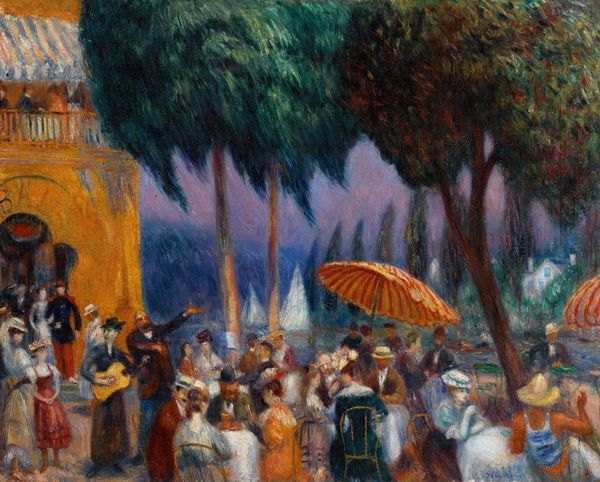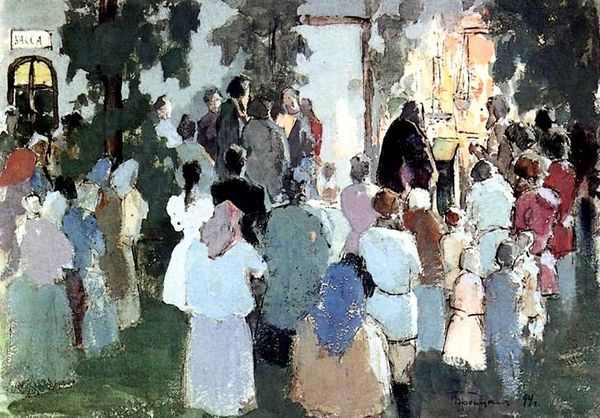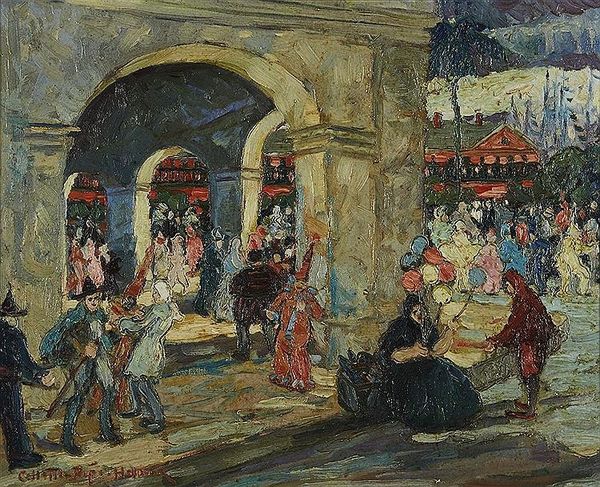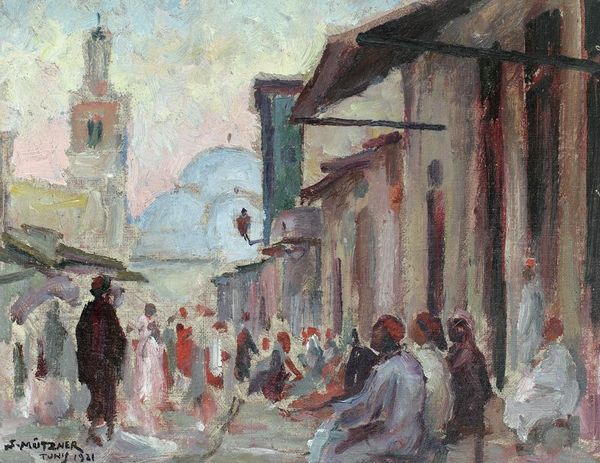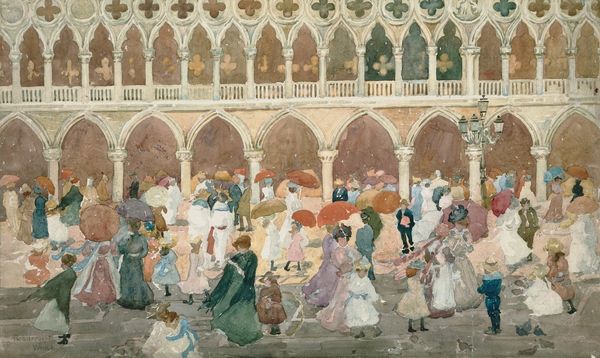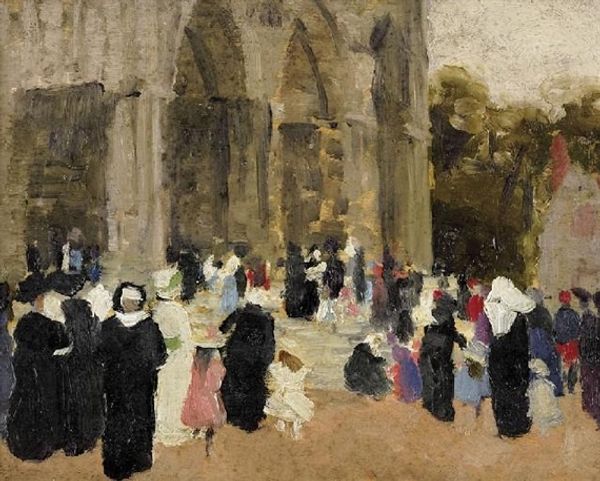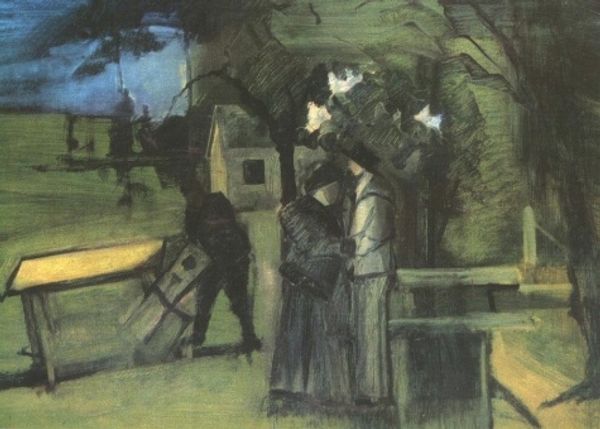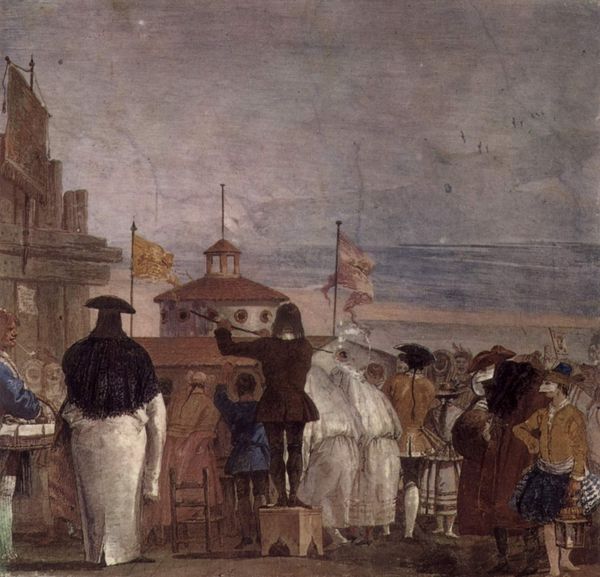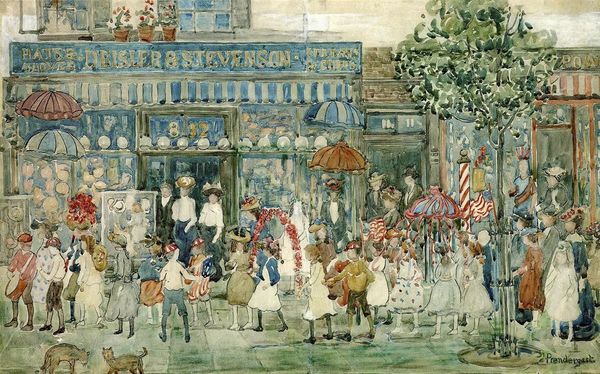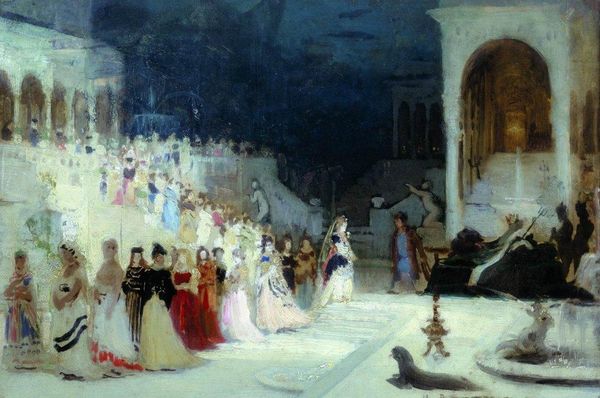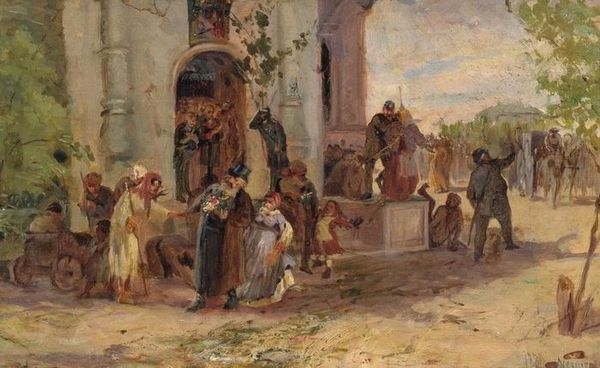
#
boat
#
abstract painting
#
ship
#
house
#
impressionist landscape
#
painted
#
neo expressionist
#
acrylic on canvas
#
street graffiti
#
urban art
#
painting painterly
#
impressionist inspired
#
expressionist
#
building
Copyright: Public domain
Editor: So, this is Boris Kustodiev's "Embankment of Venice," painted in 1918. I’m struck by its almost dreamlike quality. It feels both present and distant. What do you see in this piece? Curator: What I find compelling is how Kustodiev uses Venice, a city steeped in history and romance, as a backdrop for reflecting on early 20th-century society. Venice wasn't just a picturesque location, but also a stage where issues of class, gender, and social mobility were being performed. Editor: I hadn't really considered that. I was focused on the scenery, the light, the figures. Curator: Look closer at those figures. They’re predominantly bourgeois, leisurely strolling. How might Kustodiev be commenting on the privileges afforded to this class at a time when much of Europe was facing immense upheaval due to World War I and the Russian Revolution? Notice how they are framed by classical architecture. Editor: Are you suggesting there’s a critique of social inequality embedded within this beautiful scene? The perspective emphasizes the solid architecture with a mass of individuals, but their faces are not discernable. Curator: Exactly! Art often plays with this tension. It offers beauty, but also prompts us to question who gets to enjoy that beauty, and at what cost. Kustodiev makes Venice both the subject and object to scrutinize Russia's privileged. What did you take away from our talk today? Editor: I learned a great way to read beyond face value. Curator: Art history offers plenty more for you to unearth, as does Kustodiev.
Comments
No comments
Be the first to comment and join the conversation on the ultimate creative platform.
